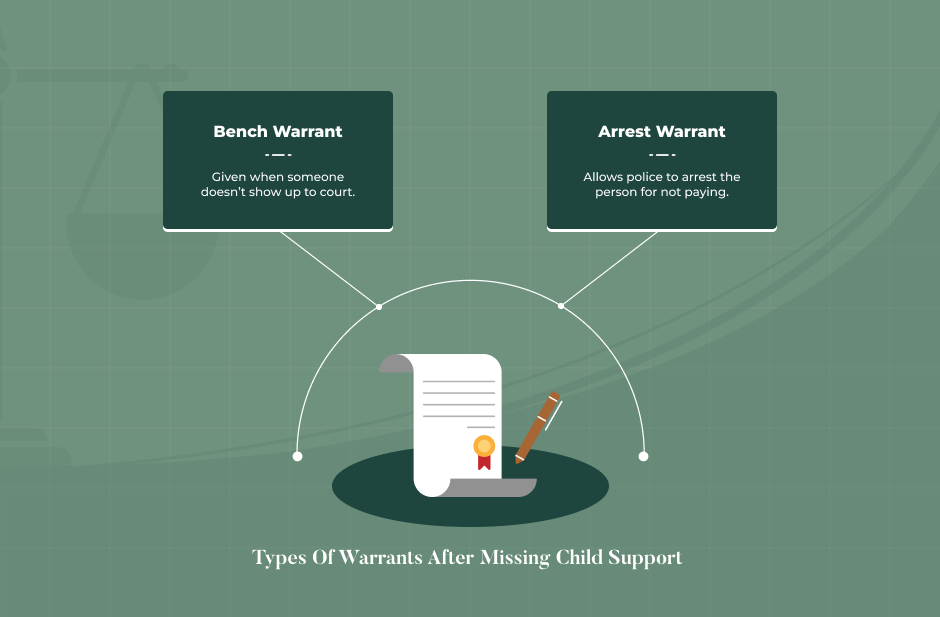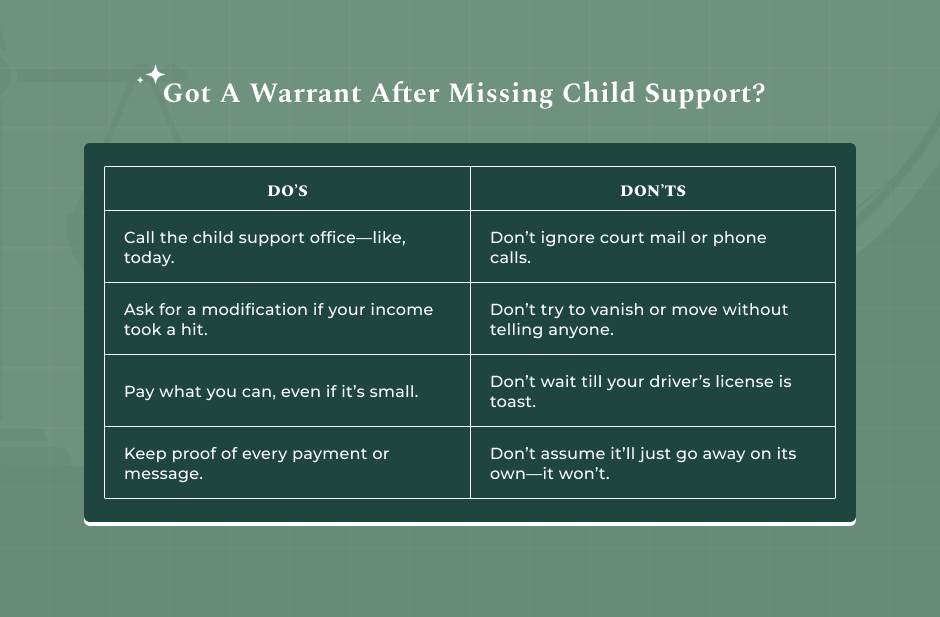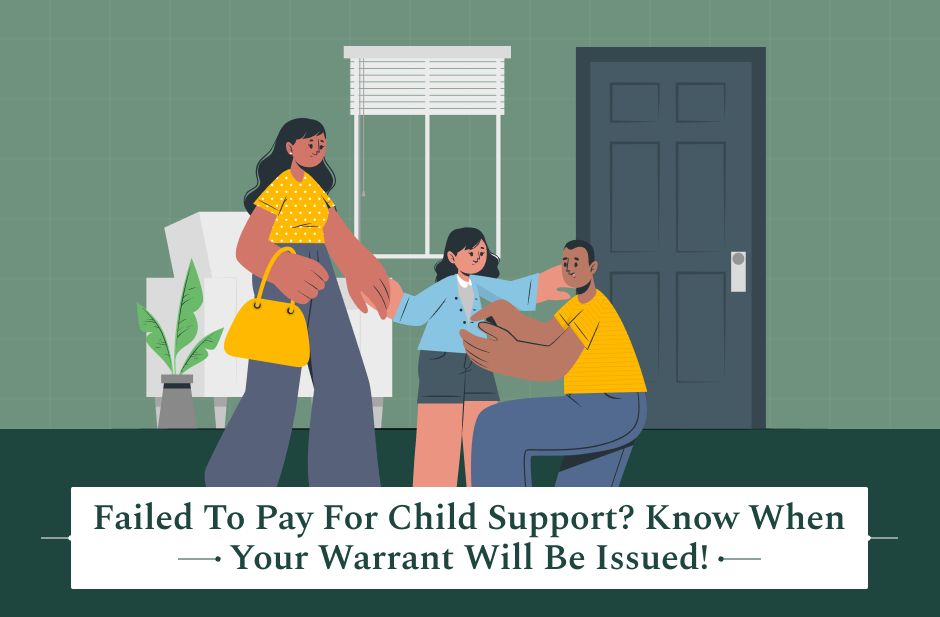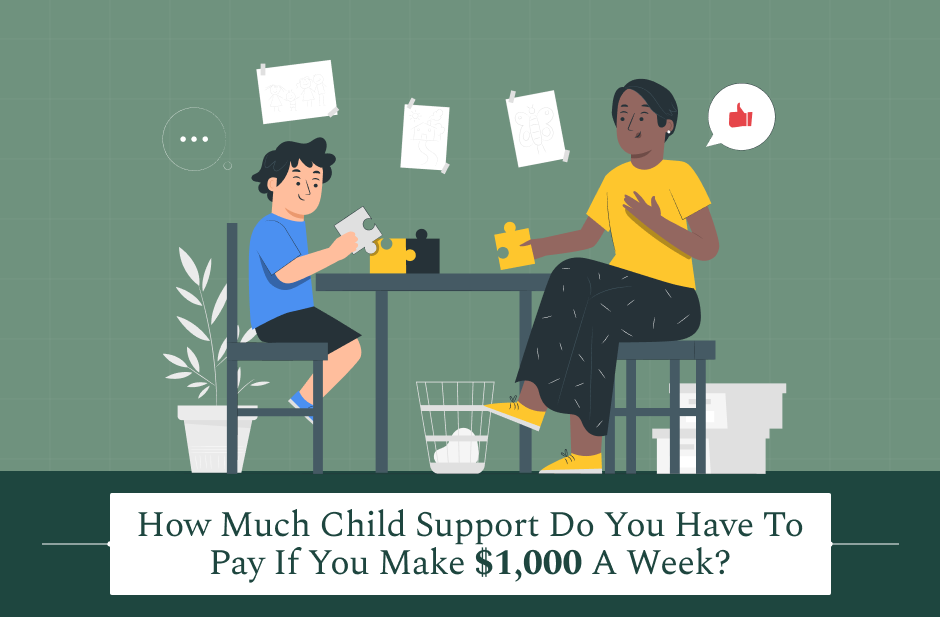The moment someone gets to know that they need to pay for child support, there is one thing that most people search: How far behind in child support before a warrant is issued?
And TBH, having this fear of getting a warrant is not uncommon.
Why? Well, that’s basically because the law takes child support very seriously. Not only does missing the child support put the families in a lot of stress, but also hampers the basic needs of the child.
But apart from thinking about the child, the fear of getting a warrant is also something that bugs a lot of people.
Because after already going through a tough phase legally with the entire ordeal of divorce and alimony, it is best not to get a warrant regarding almost the same issue. I mean, if I was in your position, I would really not want that to happen!
But really, how far behind in child support before a warrant is issued?
If that is what you want to know, then you have come to the right place.Therefore, keep on reading this blog till the end…
What Is Child Support And Why Does It Matter?
Okay, let’s break this down in real-world terms: when two parents aren’t living under the same roof, that kid still needs things—food, clothes, school supplies, a roof over their head, all of it.
The law basically steps in and says, “Hey, one of you needs to help out financially.” This money’s meant to cover essentials like:
- Meals (kids eat… a lot)
- Clothes that somehow don’t fit after 3 months
- School supplies, field trips, books
- Medical stuff—checkups, prescriptions, all that
- A safe, stable home environment
When one parent skips out on payments, it doesn’t just mess with the child’s life. The parent who’s doing the day-to-day raising ends up scrambling. And if things really go sideways? The state might have to step in and offer aid, which comes from—yep—taxpayer money.
That’s why the system doesn’t shrug this off. Unpaid child support isn’t just a “family matter.” It has ripple effects that go beyond just one household.
How Far Behind In Child Support Before A Warrant Is Issued?

Let’s not get lost in legal speak—here’s what the key words really mean:
- Delinquent = You skipped a payment
- Arrears = That pile of missed payments, which grows fast thanks to interest
Even if your wallet’s empty, don’t just ghost the system. You can ask the court to change your payments (lower them, ideally), but that only helps with what’s coming next—not what you already owe.
| Term | What It Means |
| Child Support | Cash one parent sends to help with the kid’s living expenses |
| Delinquency | Missing a payment (even one can count) |
| Arrears | The running total of what you owe + any interest tacked on |
| Modification | Asking the court to adjust payments (future ones, not backdated) |
When Do You Get in Real Trouble?
Before I start talking about what how far behind in child support before a warrant is issued, it is important that you understand the need of a warrant and what it is in the first place.
Basically, it’s the court’s way of saying: “You ignored our instructions or bailed on a hearing—now we’re sending the police.”
There are two types you should know:
- Bench Warrant: Missed a court appearance? That’ll do it.
- Arrest Warrant (Writ of Bodily Attachment): If you’re repeatedly dodging payments.
When Does A Warrant Actually Happen?
Good question. It varies from state to state, but here’s the deal: skipping one or two payments doesn’t usually get you cuffed. Warrants pop up when you:
- Blow off court orders.
- Skip hearings.
- Keep ignoring warnings like they’re junk mail.
Warrant Triggers: What States Look For
Here’s a quick snapshot of how this plays out across a few states:
| State | When a Warrant Happens | Felony/Criminal Trigger |
| California | Missed a hearing | Purposely refusing to pay—not just being behind |
| Florida | Behind 15+ days and no-showed court | Owe $2,500+ and more than 4 months late |
| Illinois | Still not paying after repeated warnings | Owe over $10K or tried to run to another state |
| Texas | Already has a warrant + owes $5K+ | Listed in “Child Support Evader Program” |
| Arkansas | Ignored everything + owes $5,000+ | Feds step in if you ghost payments for a year+ |
Heads Up: Every state’s rules are a little different. It’s often more about dodging the process than just the amount you owe.
What Happens Before the Warrant?
Don’t freak out just yet. Courts usually don’t go straight to “send the cops” mode. There are other steps they’ll take first.
First, they might try these:
- Wage Garnishment: Money comes out of your check before you ever see it
- Bank Account Seizure: Surprise! They can pull funds straight from your account
- Tax Refund Grab: That refund you were counting on? It might go to child support
- Liens on Property: You won’t be selling your car or home without paying up
- Credit Report Damage: Late payments can mess with your score pretty badly
Then comes license suspensions. To really make you take it seriously, they can suspend:
- Your driver’s license: Yup, no driving until you square things away
- Professional licenses: Doctors, barbers, realtors, you name it
- Fishing & hunting licenses: Sounds minor, but some folks really feel this one
Travel ban? Yep. there’s that too!
Owe more than $2,500? You might hit a wall trying to get (or renew) a passport. Basically: no paying, no flying.
What If You Get a Court Date?
If the court sends you a date for a contempt hearing—go. Seriously. Not showing up is the fast lane to getting arrested.
If You Show Up
You’ll at least get to explain what’s been going on. Maybe you:
- Lost your job
- Got sick
- Have been paying bits here and there
If the judge sees that you’re making a real effort? They might offer:
- A payment plan
- A purge payment (basically a chunk to avoid jail)
If You Don’t Show Up
They’ll issue a bench warrant. And yeah, they might show up at your home or job. It’s not worth it—just go to the hearing.
Can You Just Move to Another State?
In short: nope.
All states follow the UIFSA law, which means:
- If you owe in one state, the others will help track and collect it
- Doesn’t matter where you move—they can still take money from your job
- They can find you using locator services
- In some cases, you could even be brought back across state lines
Running isn’t a plan. It just adds heat.
Your Legal Guide: What Should You Do if You’re Falling Behind?
So, you have fallen behind on your child support. And you fear that you might get a warrant. Play. So, here are a few things that you need to do and avoid!
Take a look at this chart:

“Well, alright! I’ll follow this. But what if a warrant is already out?”
Even if that’s the case, there are options. It’s not game over, but time matters. Therefore, it is very important that you move quickly.
Here are a few things that you need to do:
- Talk to a lawyer—many offer free help if money’s tight
- Don’t run—seriously, that makes it way worse
- Bring any proof of hardship: bills, job loss letters, medical stuff
- See if you can negotiate a payment plan and avoid jail time
At the end of the day, child support isn’t just a legal thing—it’s about your kid’s future. Yeah, the system can be harsh, but if you show up and try? There’s usually some room to work with.
Worst thing you can do? Say nothing and disappear.
So talk. Act. Ask for help. Keep your receipts. That’s the best shot you’ve got at staying on track—and being there for your kid, even when money’s tight.
Read Also:
















